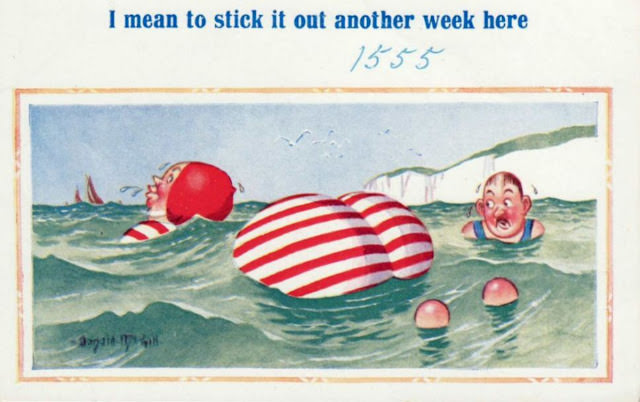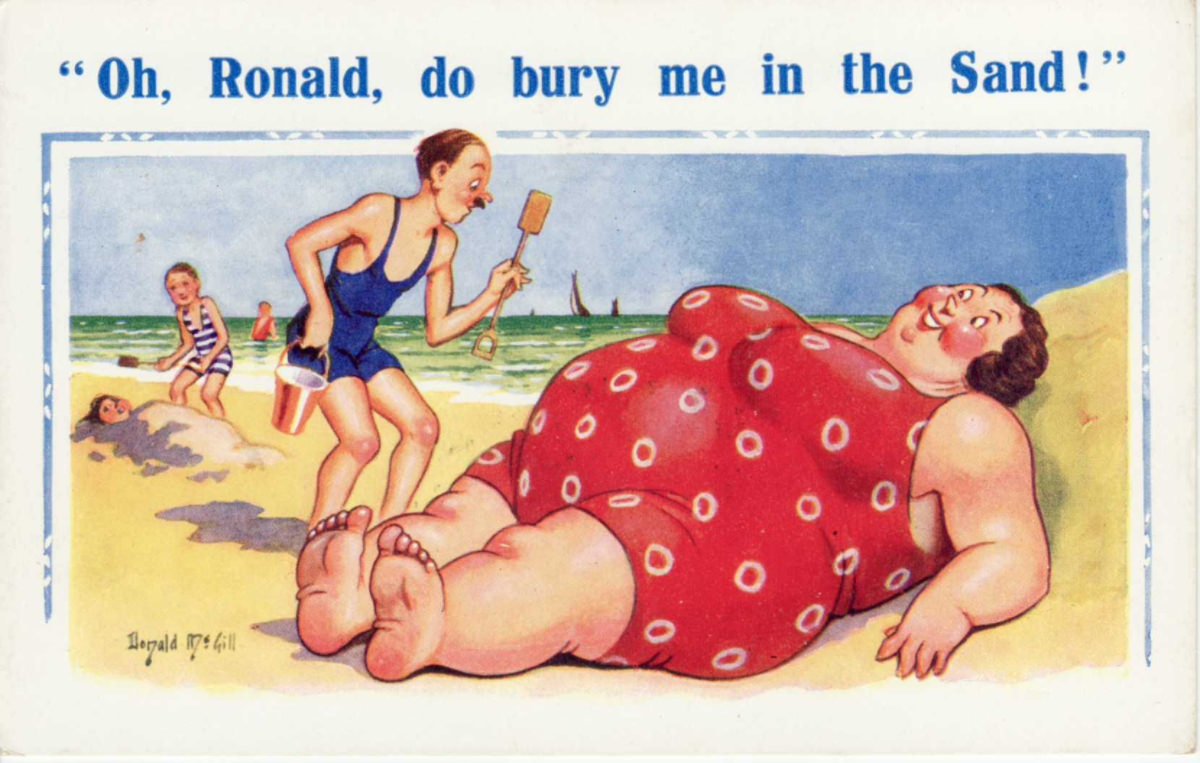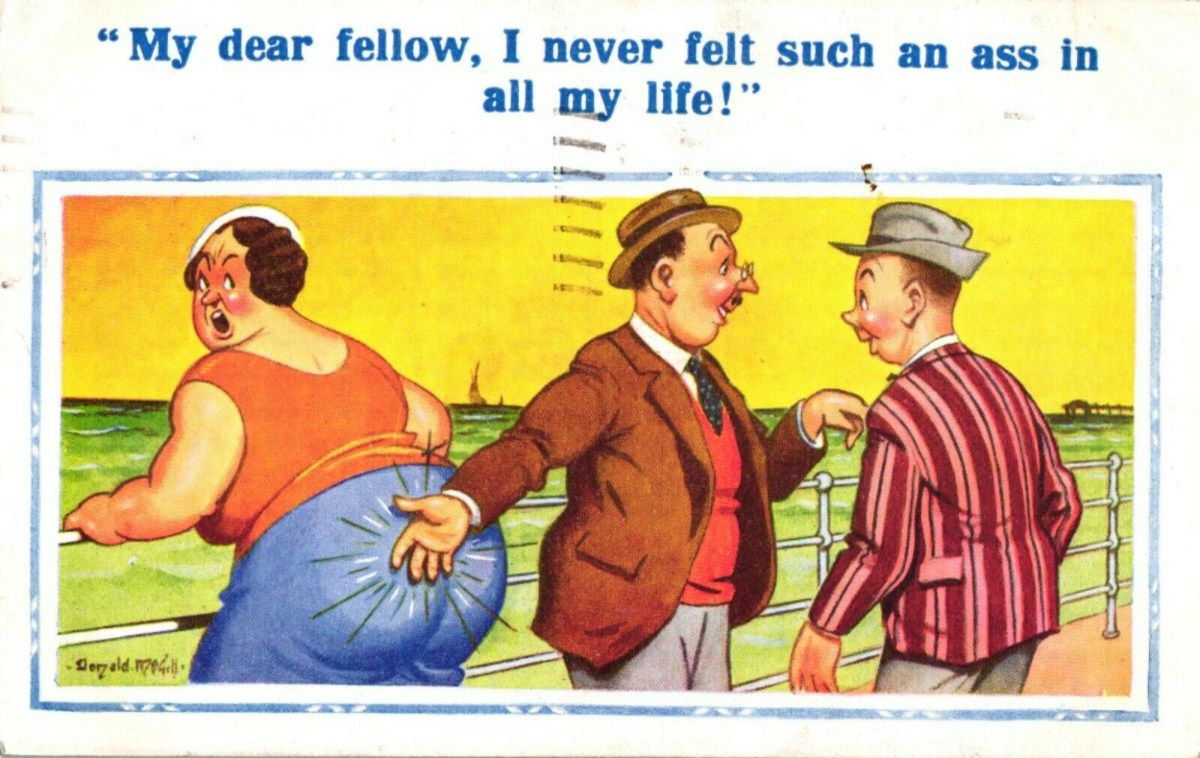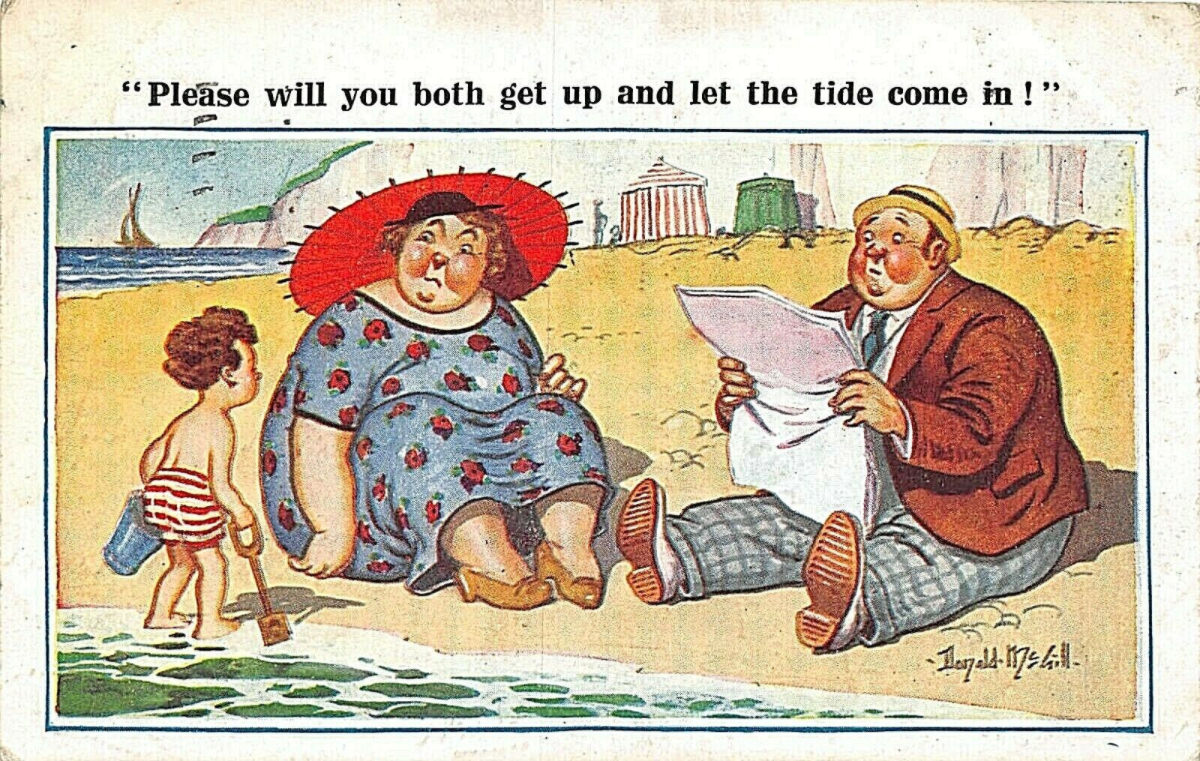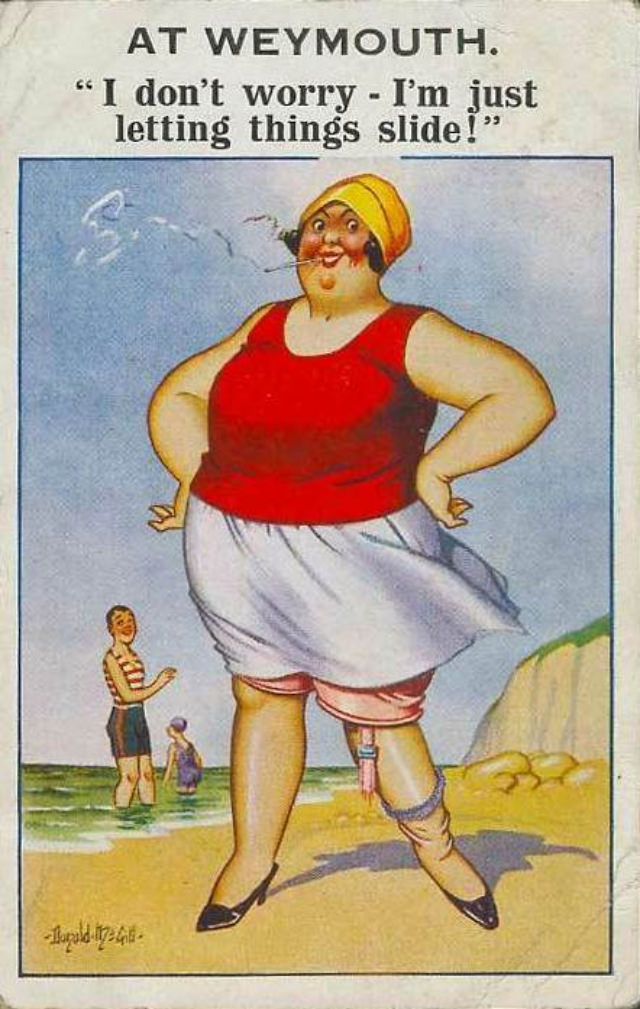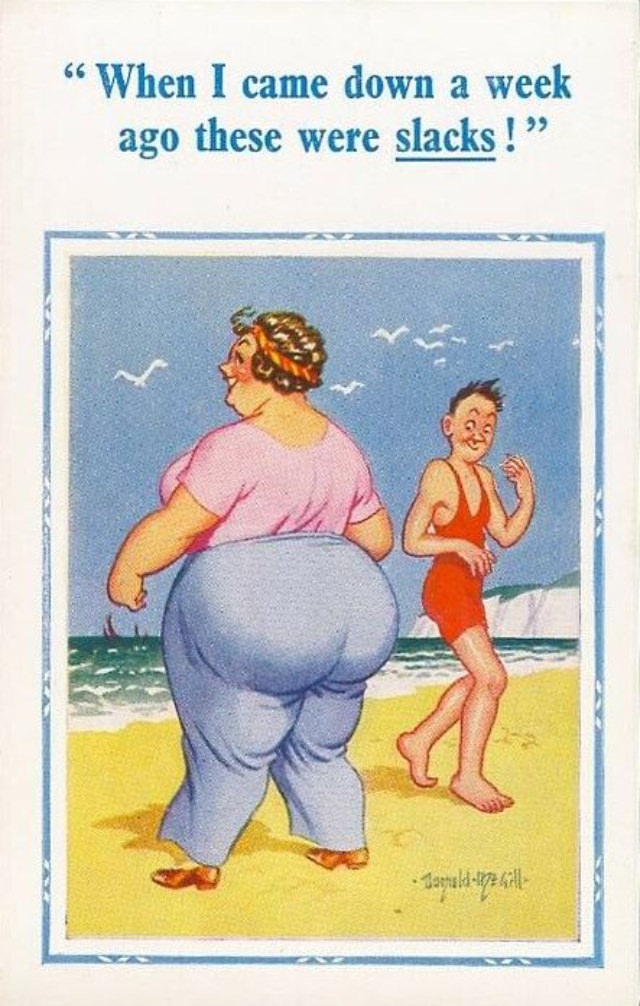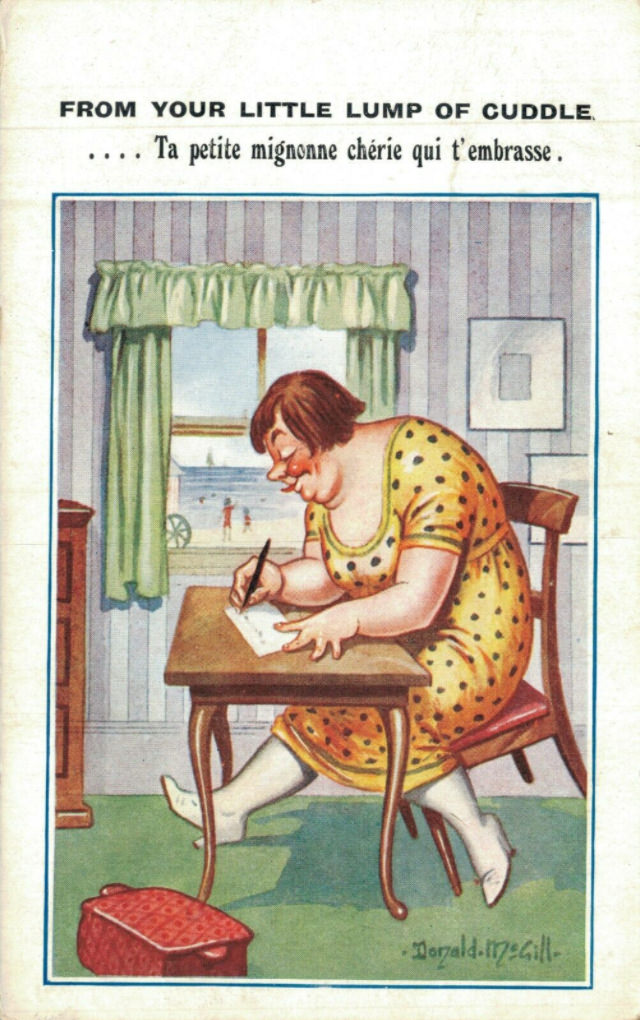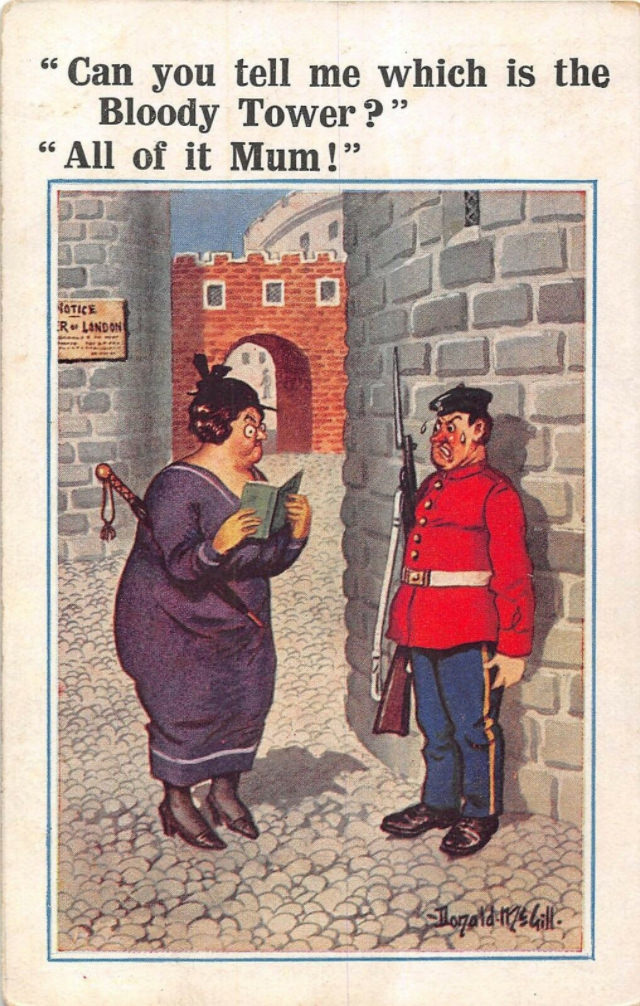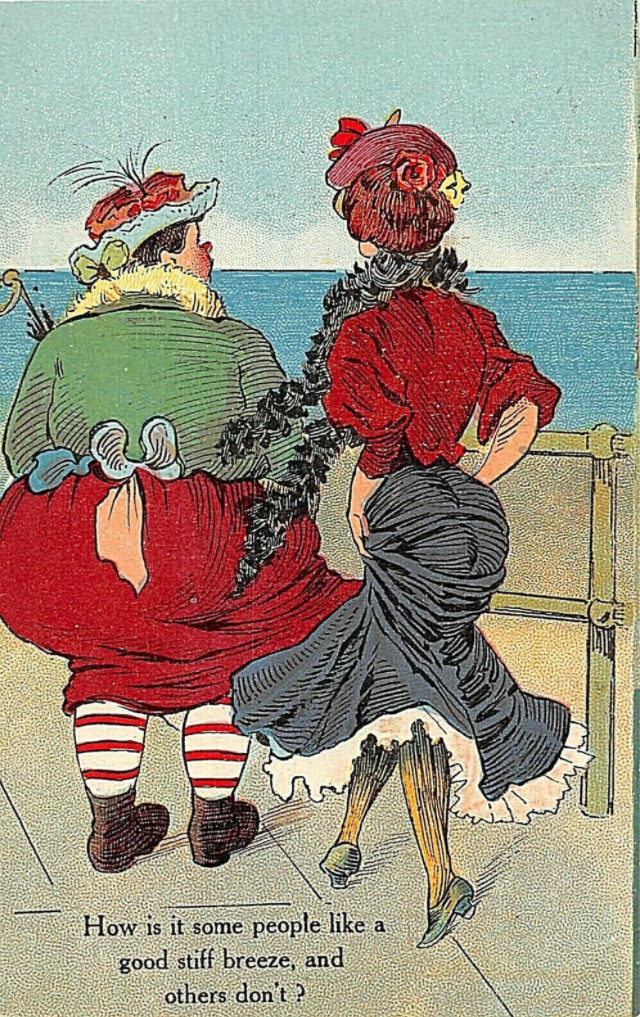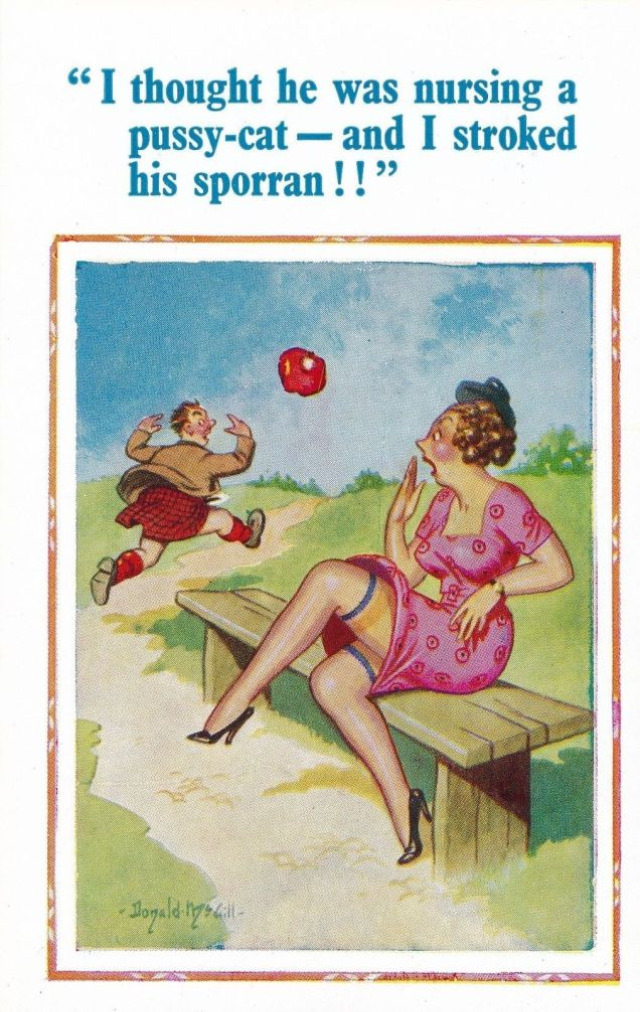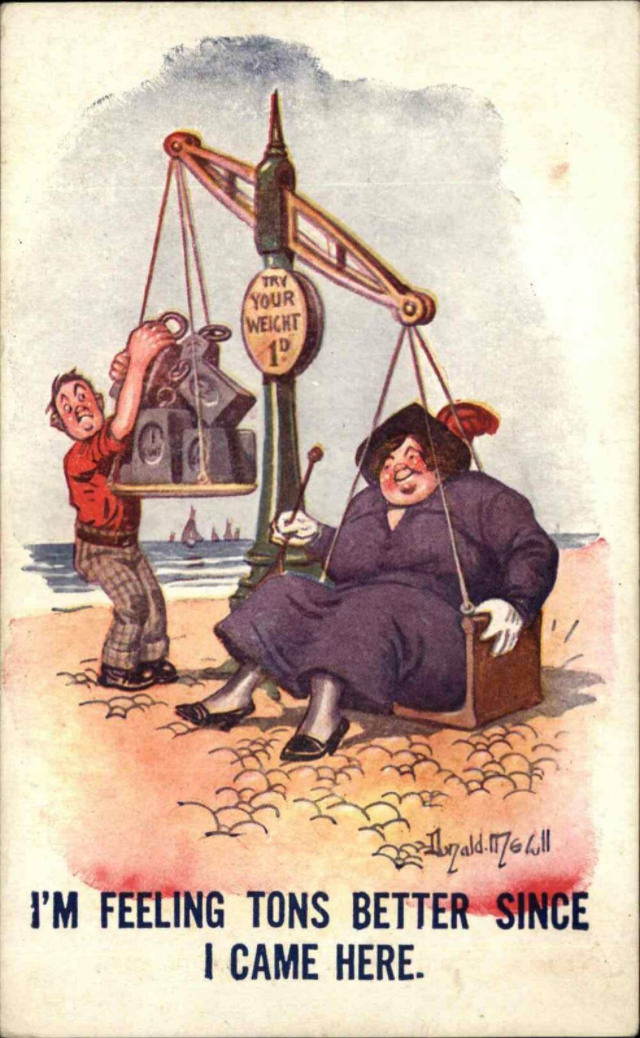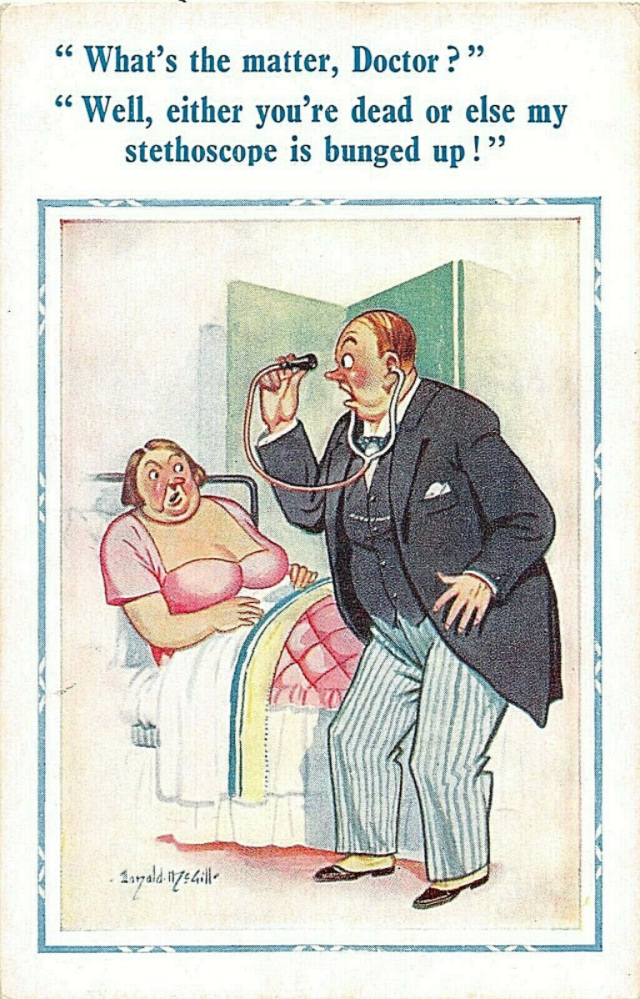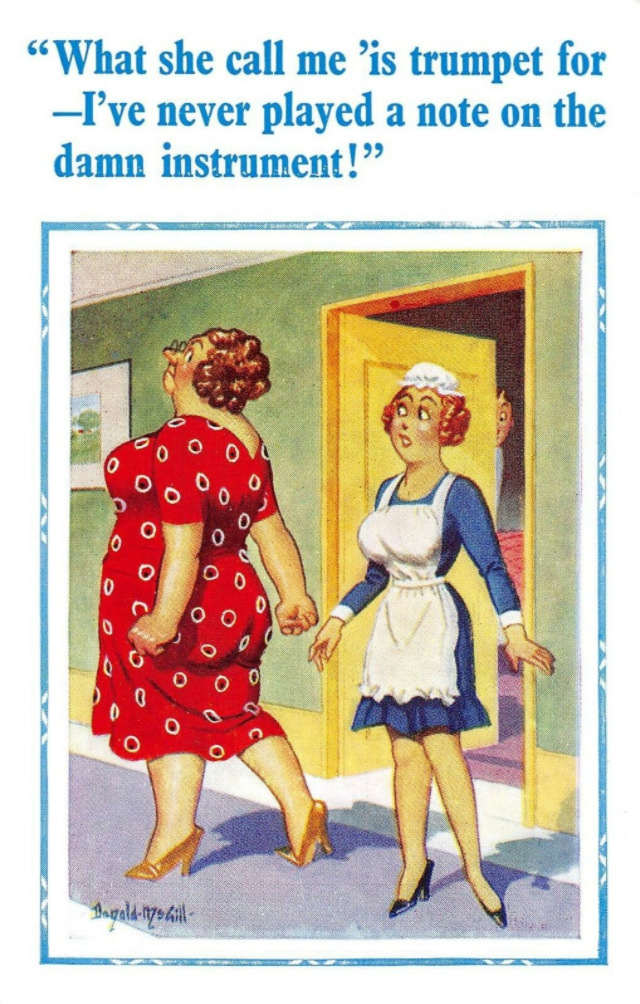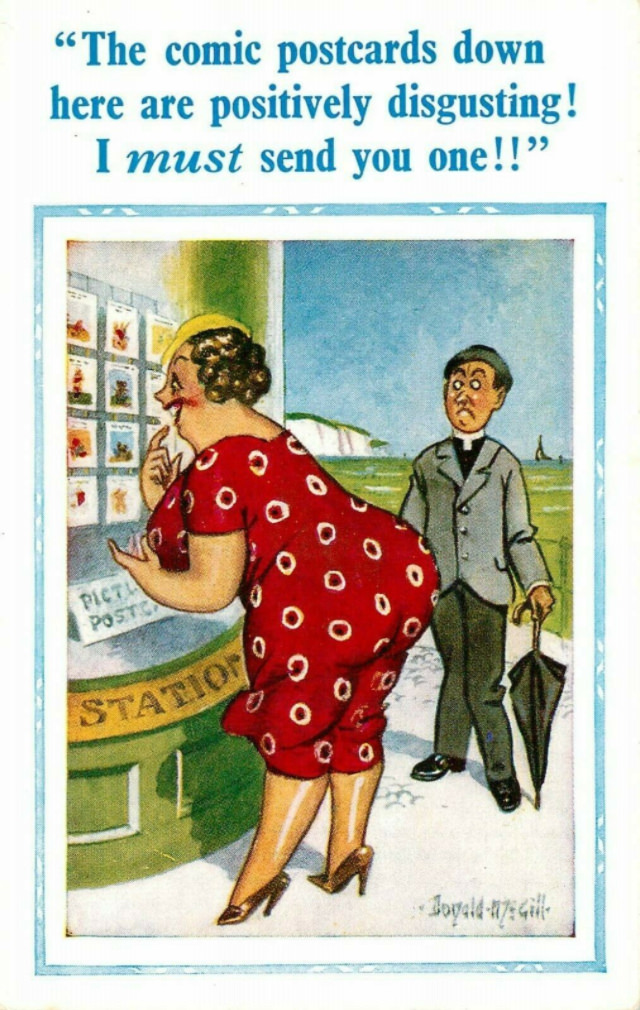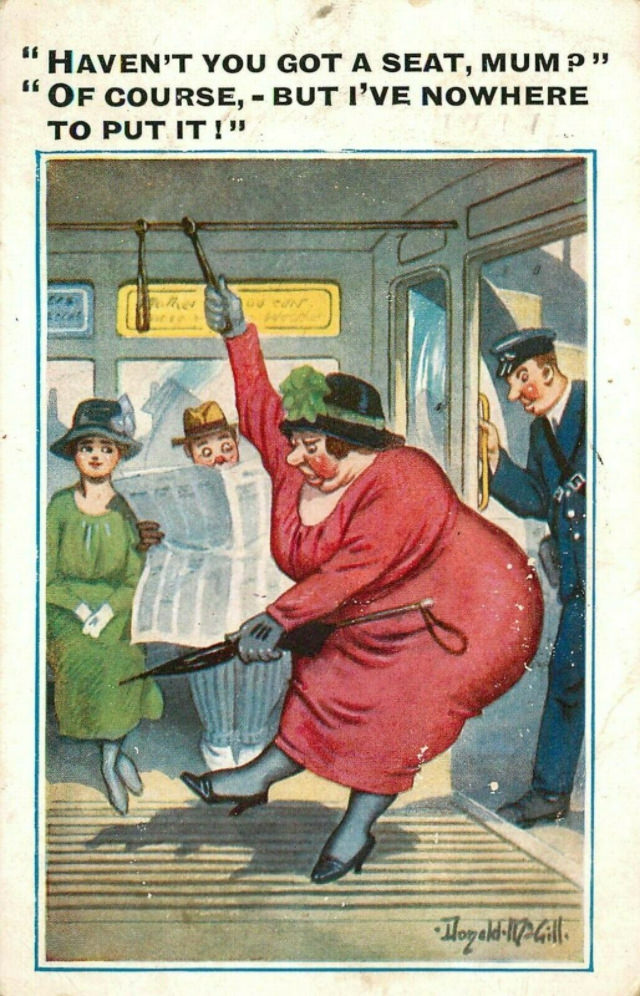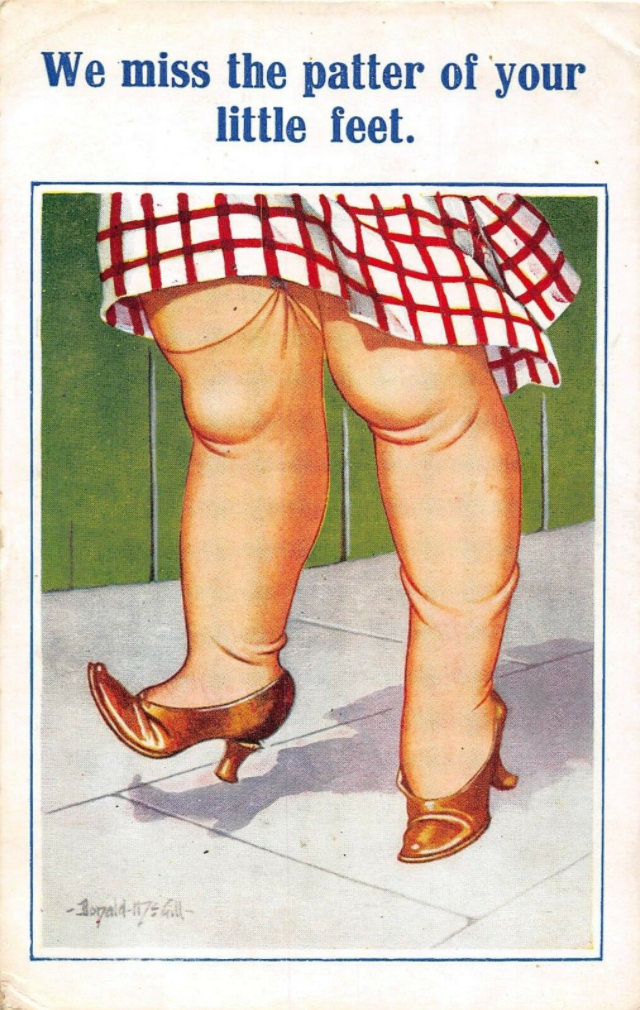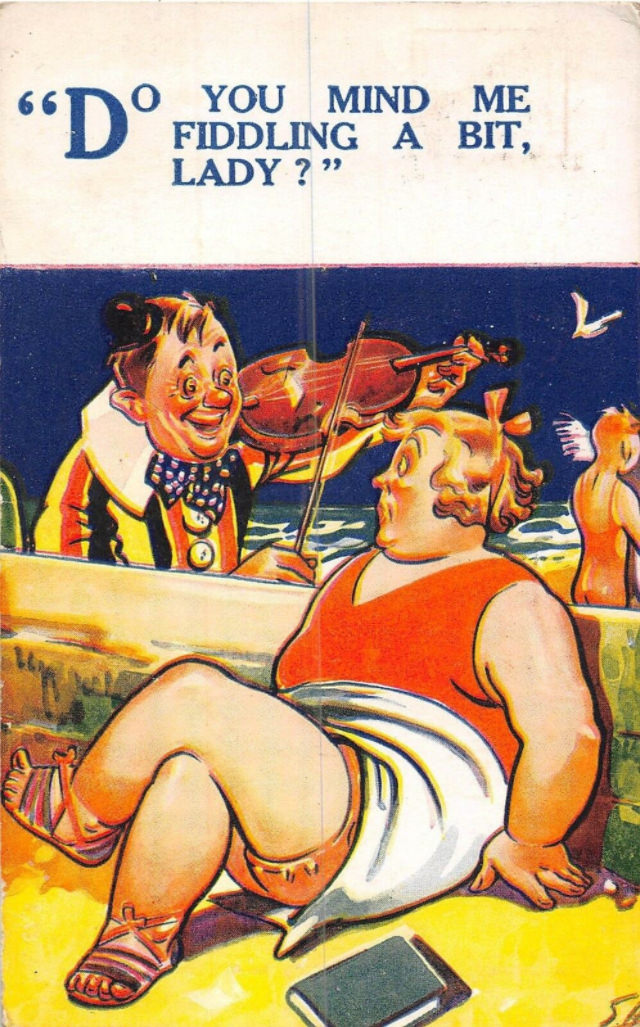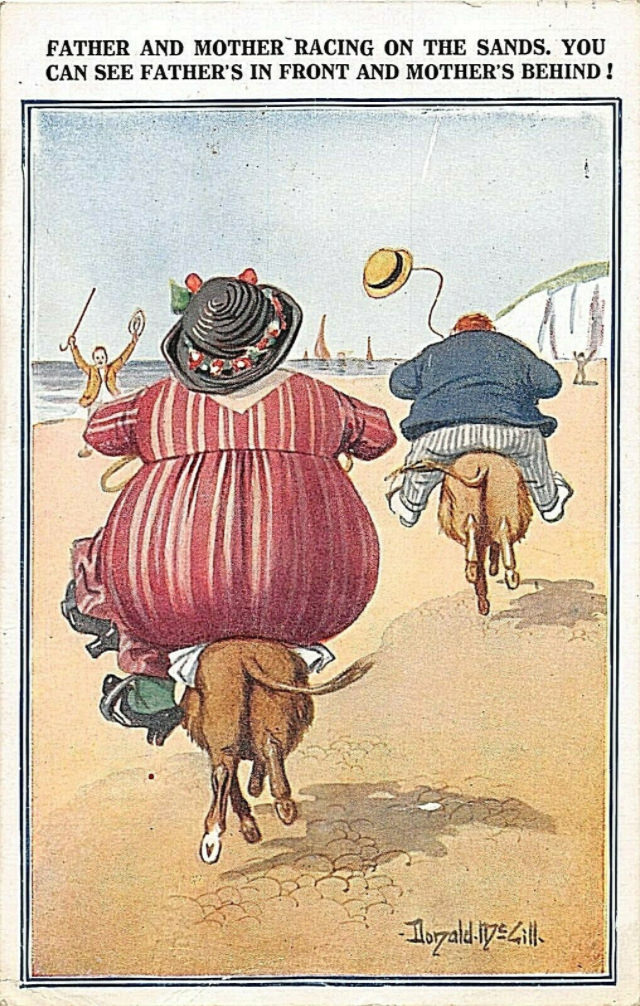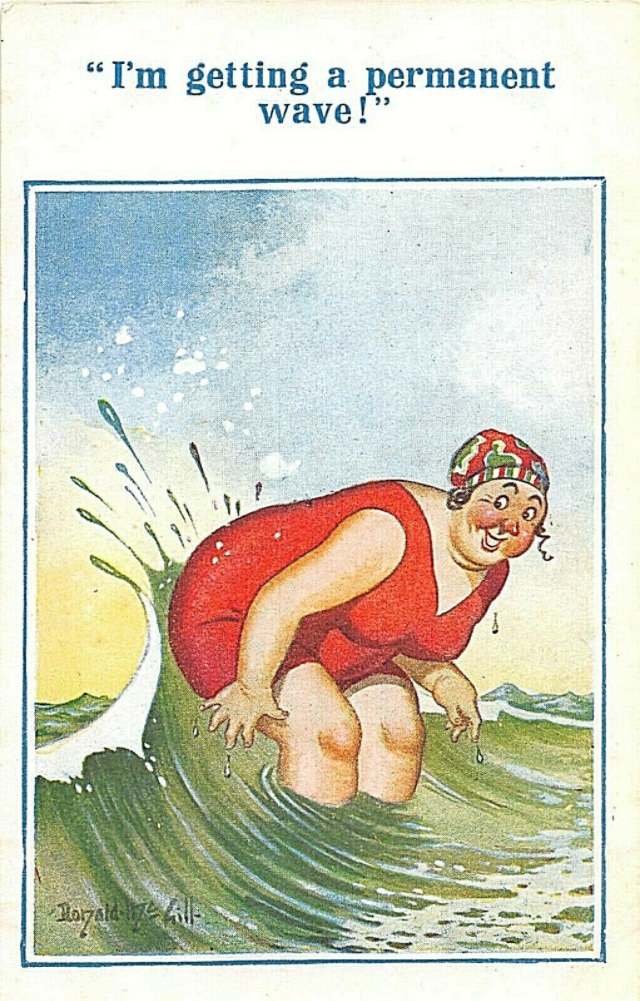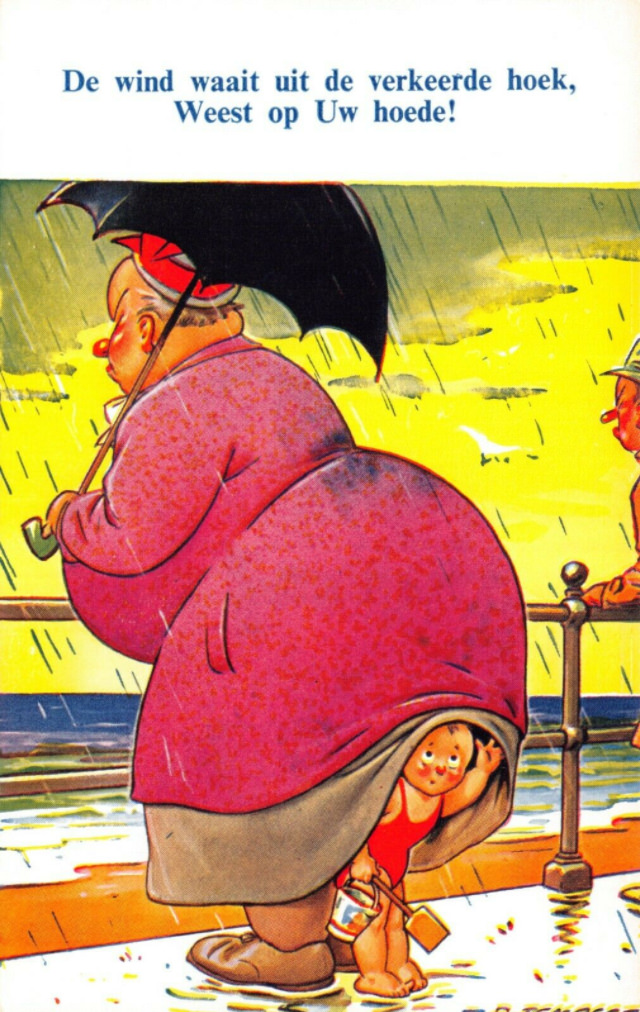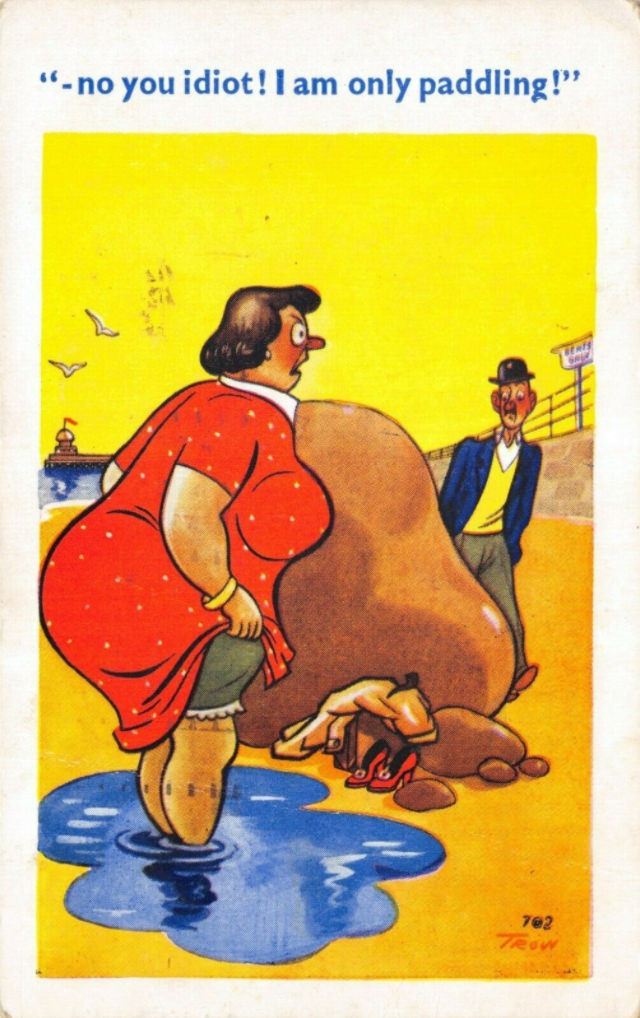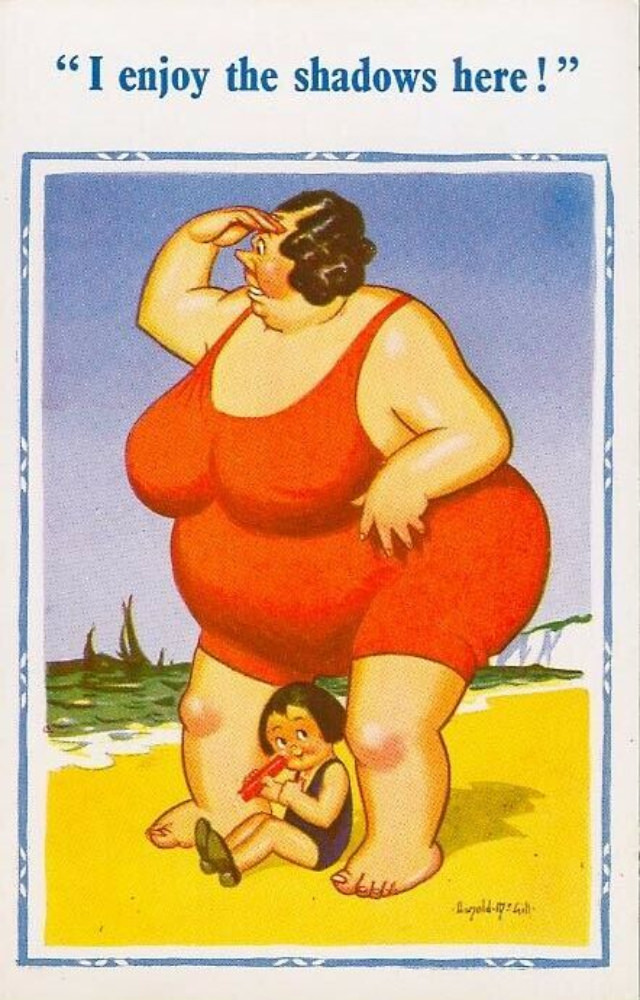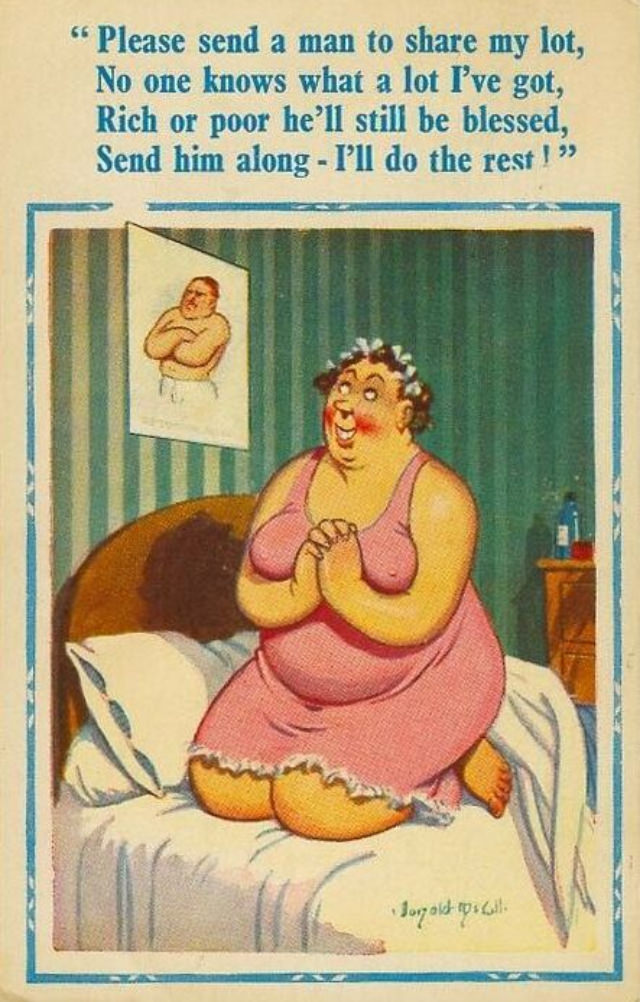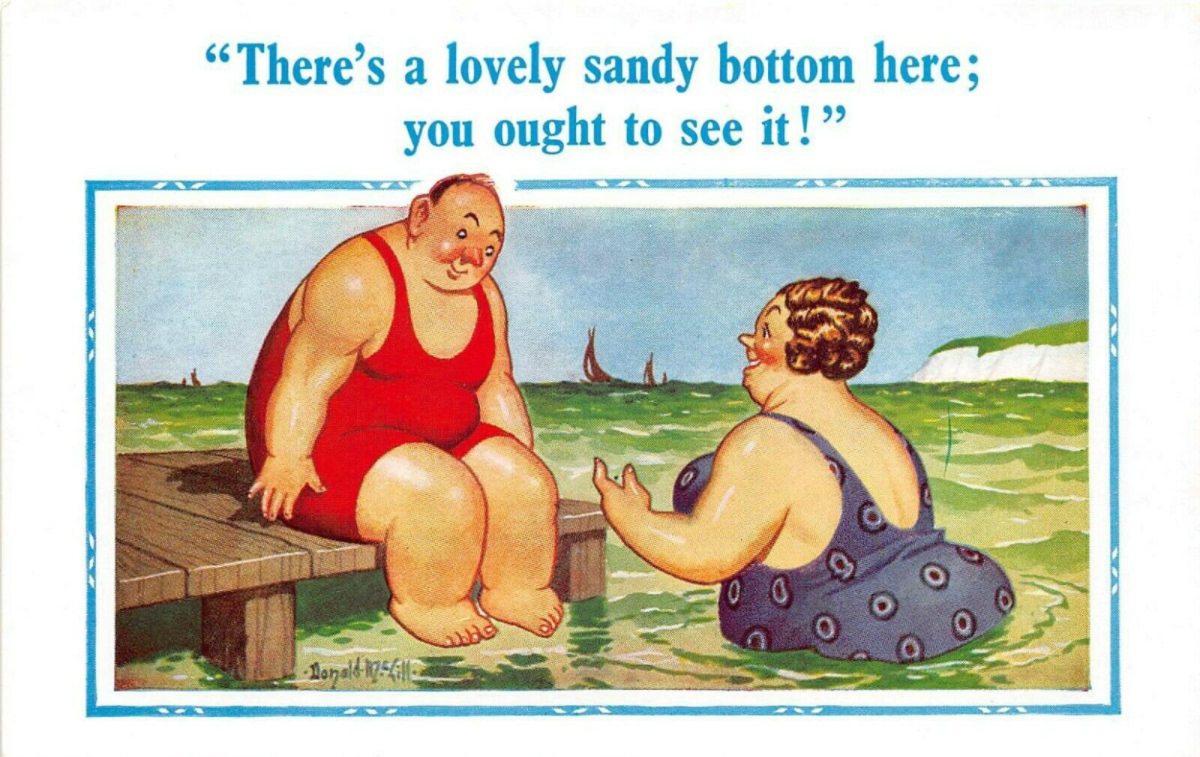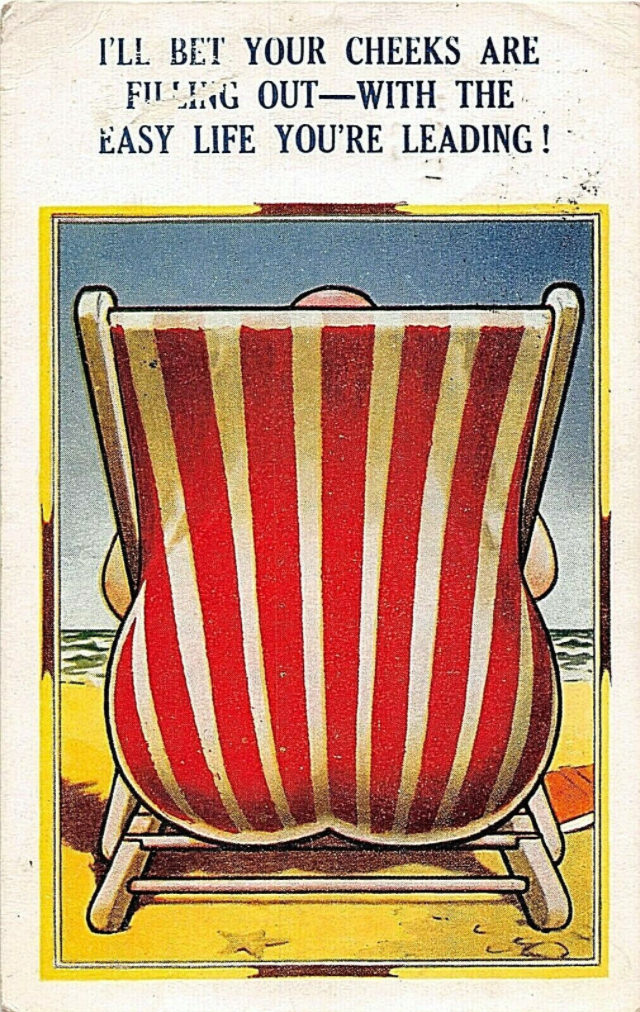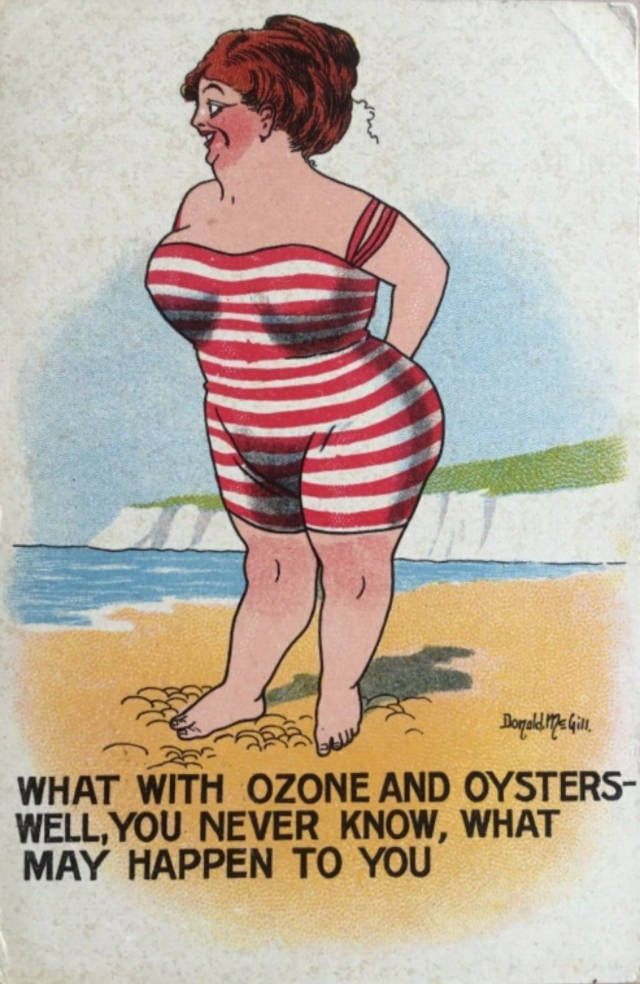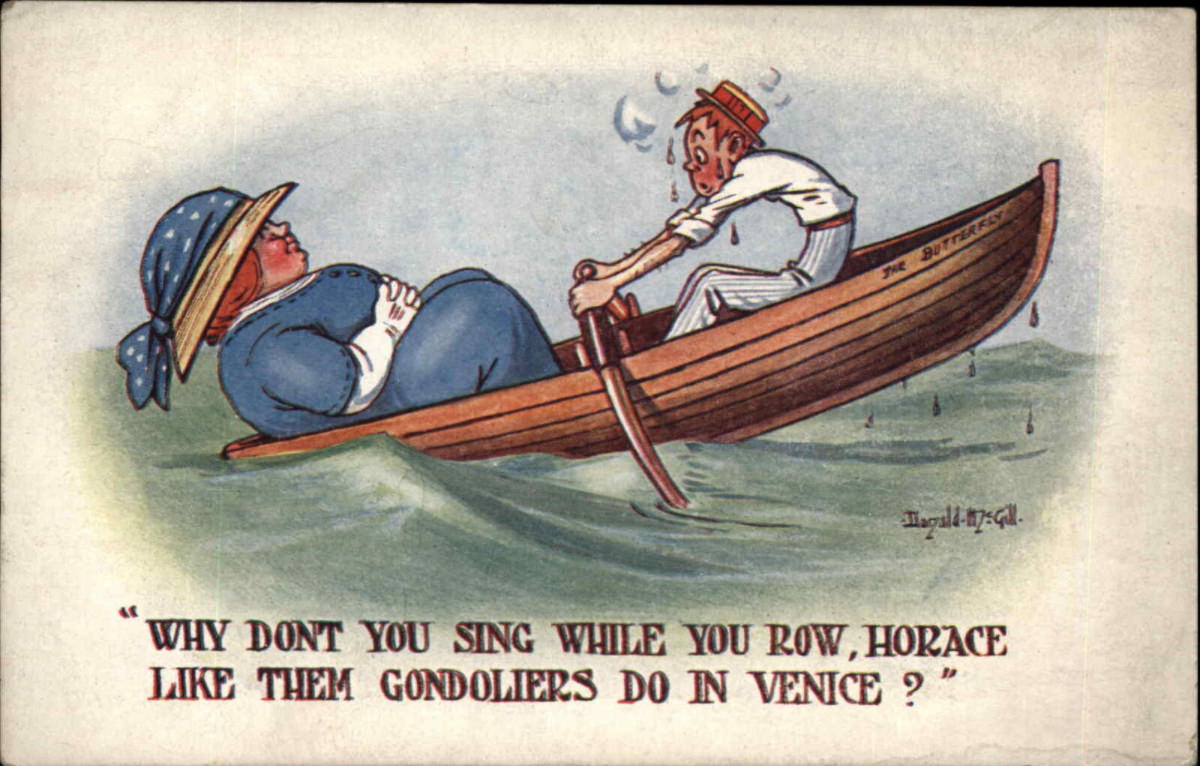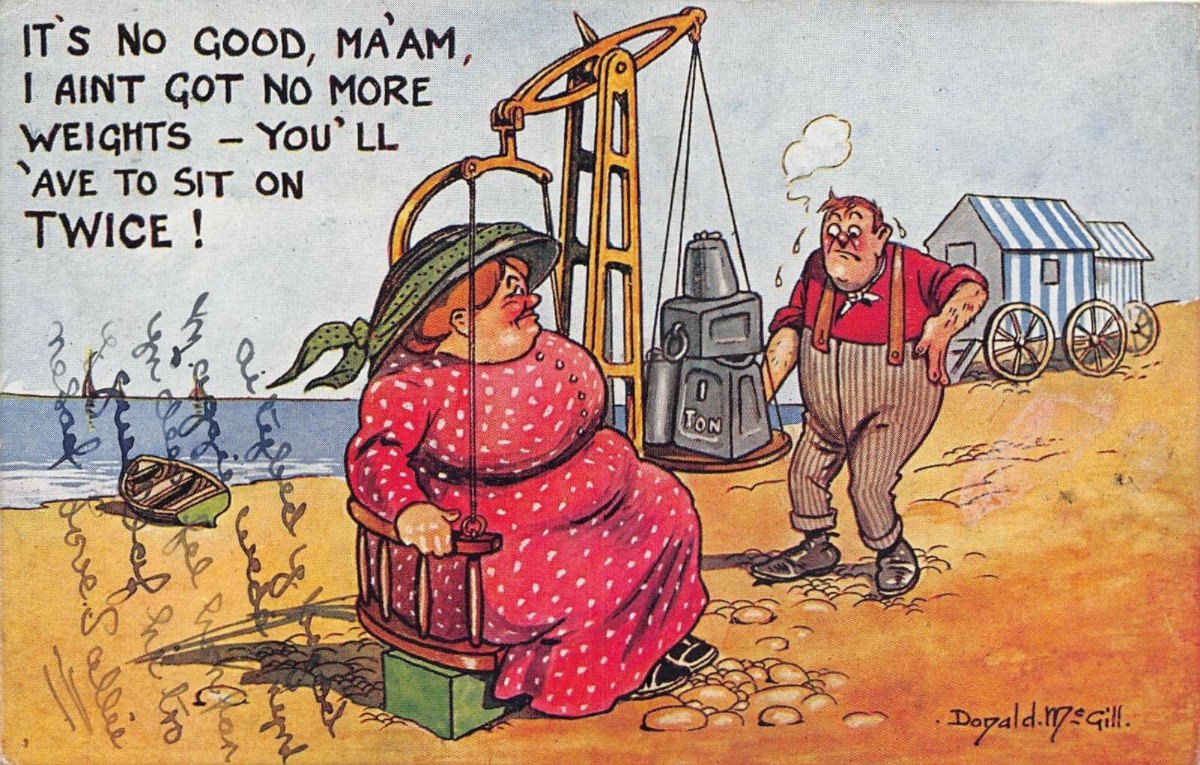Donald McGill was a talented English graphic artist and cartoonist of the 20th century. Saucy postcards dominated his career, particularly associated with the seaside (even though they were sold across the country). Many of the cards feature attractive young women, fat old ladies, drunken men in their thirties, honeymoon couples, and priests. His work is appreciated for its artistic skill, ability to observe society, and its earthy sense of humor, which have earned him the reputation of being the “king of the saucy postcard.” At the height of his fame, he made only three guineas per design, but today his original artwork sells for thousands of pounds.
Throughout his career, McGill created color-washed drawings that were reproduced as postcards. Mild, medium, and robust were his three levels of vulgarity based on the sales of his products. However, his family was steadfastly respectable. His two daughters would run like stags whenever they passed a comic postcard shop.
During World War I, he promoted anti-German propaganda through humorous postcards. They reflected on the war from the opinion, as he saw it, of the men serving and the realities facing their families at home. Card topics related to the domestic front included rationing, home service, war profiteers, spy scares, and internments. On July 15, 1954, McGill was found guilty of violating the Obscene Publications Act 1857 after several local censorship committees investigated. The fine and costs were £50 and £25 respectively. As a result, many saucy postcards were destroyed, and retailers canceled orders. As a result of trading on minimal margins, several of the smaller companies went bankrupt.
After the late 1950s, the level of censorship eased off, and the market recovered. McGill contributed to a select committee set up by the House of Commons in 1957 to amend the 1857 Act. McGill produced about 12,000 designs, which were printed in 200 million copies. Donald McGill died in 1962. He was buried in Streatham Park Cemetery in an unmarked grave.


